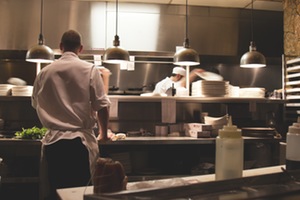 When buying a business, regardless of type, how the purchase price is paid is of paramount importance. If it is paid in a lump sum at Closing, then there is no issue presuming the ownership of the business transfers at Closing. However, if the payment is made over time, it will be structured as a loan (with interest) and you will need to determine whether that loan is secured with collateral – typically the business assets being sold – or not. If the buyer defaults on the loan, and it is secured by the business assets, the seller can take back the business more directly.
When buying a business, regardless of type, how the purchase price is paid is of paramount importance. If it is paid in a lump sum at Closing, then there is no issue presuming the ownership of the business transfers at Closing. However, if the payment is made over time, it will be structured as a loan (with interest) and you will need to determine whether that loan is secured with collateral – typically the business assets being sold – or not. If the buyer defaults on the loan, and it is secured by the business assets, the seller can take back the business more directly.
What’s for sale: the business itself or only its assets
As is the case with purchasing or selling any business, the sale of a restaurant requires you to determine whether the assets of the business are being sold or the business itself, such as a corporation or LLC. You can buy all of the equity in the corporation or LLC instead of the assets, which may allow you to avoid having to transition accounts and service provider agreements. However, in adopting this approach, it is necessary to run a search as part of your due diligence to make sure (1) there are no liens or judgments against the company and (2) you are aware of all of its debts and liabilities (as you will be assuming them unless stated otherwise).
Regardless of whether you choose to purchase the entire company or just its assets, you will want a corporate entity to own the restaurant moving forward, as it is a high-exposure business with the potential for many lawsuits to be brought against it, from claims based upon food-borne illness or injuries on site to disputes with employees, among others.
A comprehensive asset list is essential
Whether you are buying or selling a restaurant, you should work together with the other party to develop a list of the assets being sold, which should include, at minimum, equipment, supplies, and inventory. Any asset list should specifically address intellectual property, such as trade names, logos, recipes, or any other intangible asset that may have value. Additionally, if the business has employees or other service providers, or other contractual arrangements with vendors, suppliers or anyone else that is to be included in the sale, those agreements will need to be reviewed to see whether they can be transferred to the buyer. If these arrangements are to be transferred as part of the sale, that should also be addressed in some form in the ultimate agreement between the parties.
Ability to assign the restaurant’s lease is key
As the location of the restaurant may in fact prove to be its most valuable asset, having the ability to assign the lease to the buyer or terminate the existing lease and allow the buyer to sign a new one with the landlord is of the utmost importance in a restaurant sale. Moreover, moving large assets, including heaving equipment such as ovens or other furniture, out of the current restaurant location may be cumbersome or may cause damage to the assets and/or the leased premises. With this in mind, all parties should engage the landlord about this issue early on in the process of any potential or proposed sale.
Other considerations in buying or selling a restaurant
• Training may be included as part of the sale transaction, so that the buyer can learn how to run the business on any terms acceptable to the parties as part of the sale price. You can transfer the operations and assets at a different date from the Closing, if the parties want to delay the transfer until after the training has been completed.
• The parties will want to make sure that the seller is responsible for all liability of the business before the transfer of operations/assets and that the buyer is responsible for all liability thereafter.
• The parties should determine if they want – and qualify for – the seller to be subject to a non-compete and/or non-solicitation provision, where the seller is not allowed to own, operate, manage or work in a restaurant within a certain geographical area surrounding the restaurant being sold.
